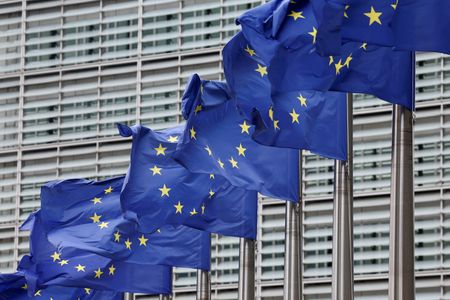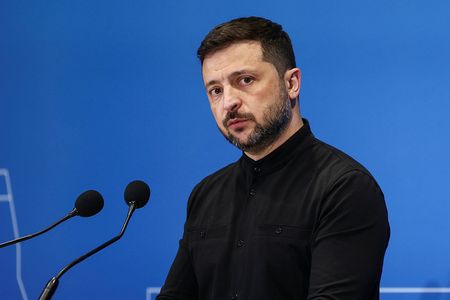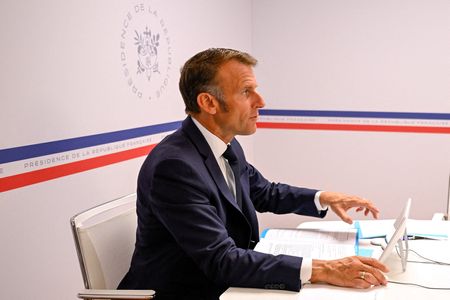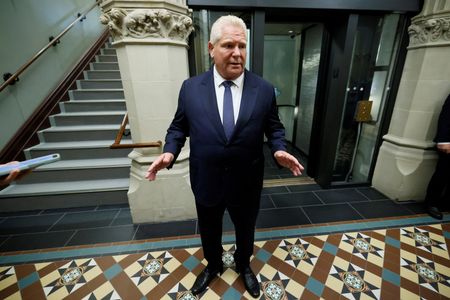(Reuters) -A European Commission poll released on Tuesday indicated that 56% of EU citizens support further enlargement of the European Union, though backing varies dramatically by country, while candidates to join show mixed enthusiasm about EU membership.
WHY IT’S IMPORTANT
Most candidate countries have been building ties with the EU for decades even as Russia seeks to maintain its influence and deter the West in regions that were formerly part of or allied with the Soviet Union.
The war in Ukraine has intensified this geopolitical rift as countries decide whether to move closer to Brussels or lean towards Moscow.
BY THE NUMBERS
56% of EU citizens favour further enlargement, even if more than two-thirds say they do not feel well informed about it.
Support varies across the EU, with people in 23 member states showing at least 50% support for enlargement. Sweden (79%), Denmark (75%), and Lithuania (74%) lead those backing enlargement, while the Czech Republic and France (both 43%) and Austria (45%) show the lowest support.
Notably, among the EU’s top three economies, only Italy reaches majority support at 53%, while Germany and France rank lower.
Among candidate countries, Albania leads with 91% support, while Serbia shows the lowest at 33%.
In the EU’s Eastern Neighbourhood, Georgia (74%) and Ukraine (68%) show strong support for EU membership, with Moldova at 60%.
The survey was conducted between February and March 2025, gathering views of over 26,300 citizens across all 27 EU member states. Surveys in candidate countries used face-to-face interviews with 1,000 individuals per country between May and June.
CONTEXT
Croatia joined the EU in 2013 in the most recent enlargement. The largest expansion occurred in 2004 when 10 countries joined, including eight Central and Eastern European states.
WHAT’S NEXT
Ukraine and Moldova formally opened accession negotiations in June 2024, with both countries aiming to open their first negotiation clusters on fundamentals as soon as possible.
Georgia’s EU accession process remains suspended after talks were halted by the government until 2028.
(Reporting by Gianluca Lo Nostro; Editing by Matt Scuffham, William Maclean)










